The LGBT guide to who should win the World Cup
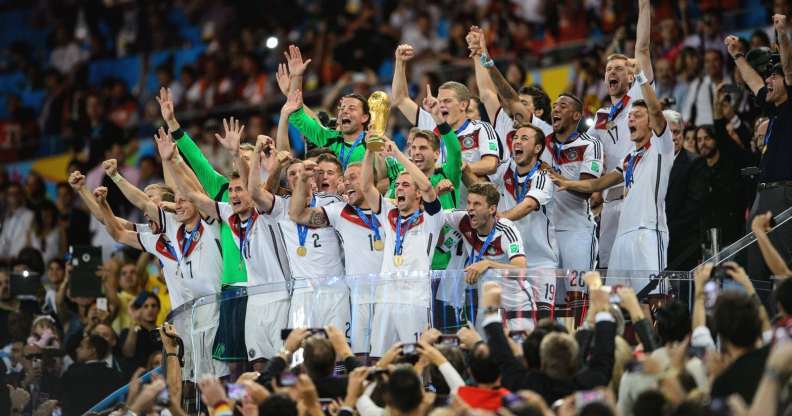
(Matthias Hangst/Getty)
The World Cup is nearly here, with its football, fun and fraught situation over LGBT rights in its host country.
Russia is not an ideal place to hold a global competition watched by billions, with a repressive government and restrictive laws, but there are other teams which deserve the LGBT community’s support.
So if you’re someone who enjoys watching the World Cup through an LGBT lens, look no further – we’ve got you covered.
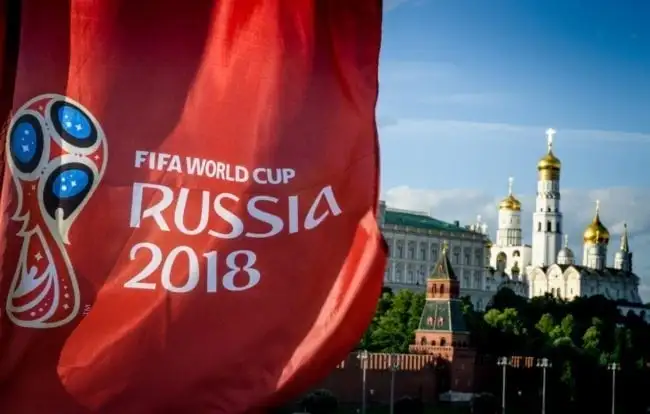
(MLADEN ANTONOV/AFP/Getty)
Whether it’s Costa Rica v Serbia or England v Belgium, we can tell you which nation treats its LGBT community better – with the help of LGBT rights authority Equaldex – and therefore should be cheered on to the rafters.
Let’s kick-off.
Russia v Saudi Arabia
Russia won’t be attracting much LGBT support.
The country is hardly the most inclusive venue for the world’s most popular sports tournament, with its government having instituted an anti-gay ‘propaganda’ law in 2013 that has seen hate crimes against LGBT people double.
Last week, the Football Supporters’ Federation “strongly” warned queer fans not to “publicly display sexuality” – for instance by holding hands or being affectionate towards their partner – at the World Cup.
And then there are the repeated claims by Russian authorities that there are no gay people in the country, used to sidestep accusations that the officials conducted a gay purge in Chechnya last year.
On the other hand, at least being gay is technically legal in Russia. In Saudi Arabia, homosexuality is punishable by death and LGBT people are not protected by law.
Verdict: Russia is marginally better on LGBT rights, but neither side deserves your support. Cheer for Saudi Arabia to lose, if anything.
Egypt v Uruguay
Uruguay has appointed a transgender senator, legalised same-sex marriage and adoption, protects against LGBT discrimination, legally recognises trans people and even bans gay ‘conversion’ therapy, which neither the UK or US does.
Egypt criminalises LGBT people in almost every way possible. In 2013, a survey found that three percent of people in the country support homosexuality, which is illegal in the country.
Verdict: Support Uruguay in a big way.
Morocco v Iran
As with so many countries in the world and the World Cup, these two nations have a terrible record on LGBT rights. Iran punishes homosexuality with the death penalty, unlike in Morocco, where those found guilty are thrown in prison – though gay people can give blood, which obviously isn’t much consolation. Neither is a bastion of equality, is what we’re saying.
Verdict: Morocco to win, but only by the smallest possible margin.
Portugal v Spain
This Iberian battle royale is a clash between two countries who respect LGBT rights to (nearly) the max. Spain may have legalised same-sex marriage all the way back in 2005, but our support lies with Portugal here. Cristiano Ronaldo’s nation protects employees from discrimination based on their gender identity as well as their sexuality, which Spain doesn’t.
Verdict: Support Portugal in this game, but back both teams in general.
France v Australia
Again, both nations support the rights of LGBT people across the board, especially after Australia passed same-sex marriage into law last year and saw its last state legalise same-sex adoption in March.
And it’s Australia who wins our vote, with the country’s medical authorities’ ban on gay ‘cure’ therapy pushing them over the top.
Verdict: Australia in a 4-3 humdinger. Both sides deserve to score a few.
Argentina v Iceland
Lionel Messi’s Argentina has allowed gay people to serve openly in military and donate blood, while gay ‘cure’ therapy is forbidden. Iceland has an excellent record, but even they don’t allow trans people to change their legal gender without surgery, which the South American country does.
Verdict: Vamos, vamos, Argentina.
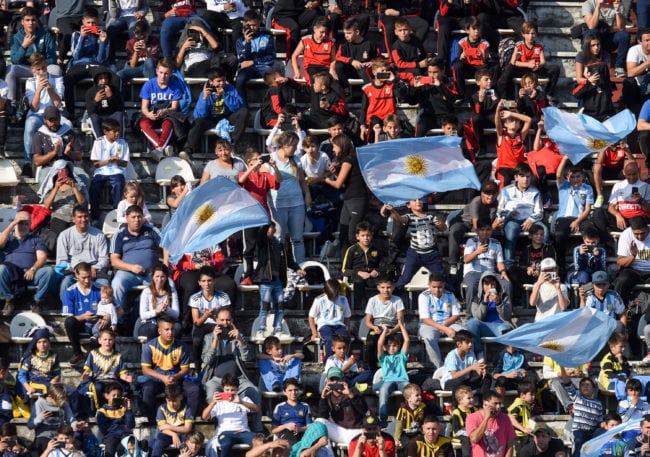
(Marcelo Endelli/Getty)
Peru v Denmark
An easy win for Denmark here, with the Scandinavian nation having made it so that trans people can gain legal recognition without surgery, instituted protections against discrimination for LGBT people, and legalised same-sex marriage – all of which Peru has not done.
Verdict: Victory goes to the Danes.
Croatia v Nigeria
A crushing win for the Croats here, despite having not yet made same-sex marriage legal. LGBT people also struggle to adopt or legally change their gender, but at least they don’t have to fear death or 14 years in prison if their sexuality is revealed.
Verdict: Croatia by a landslide.
Costa Rica v Serbia
Serbia has one of the first lesbian leaders in the world, in the shape of Ana Brnabić, while Costa Rica led the legal charge which resulted in the Inter-American Court of Human Rights ordering 16 countries to legalise same-sex marriage earlier this year. They’re both making progress, but Serbia is ahead at the moment, as it allows same-sex couples to adopt and trans people to change their legal gender.
Verdict: Support Serbia, but don’t hate on Costa Rica.
Germany v Mexico
Mexico beat Germany to legalising same-sex marriage and adoption, and the central American nation has made great strides in the last decade, legalising blood donation for gay men and banning gay ‘conversion’ therapy. Germany has take neither of these steps, and only made made equal marriage legal last year. A rare European defeat in this one.
Verdict: Mexico to win a titanic battle between two LGBT-friendly nations.

(Clive Rose/Getty)
Brazil v Switzerland
Being gay has been legal in Switzerland since 1942 – which was perhaps the best thing the country did during WWII. But despite getting ahead of the game in the 40s, the nation has stalled on same-sex marriage and adoption, while Brazil has legalised both. Gay ‘conversion’ therapy has also been banned in the country since 1999 – with a break of a few months last year following a controversial ruling which was later overturned.
Verdict: Back Brazil.
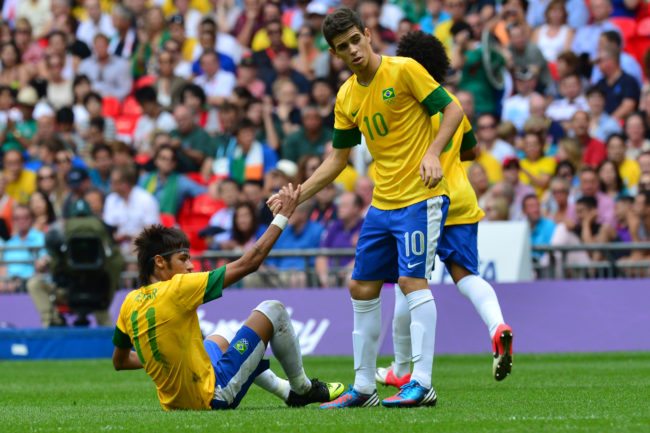
(LUIS ACOSTA/AFP/Getty)
Sweden v South Korea
Gay people in South Korea can’t get married, can’t adopt children, have no protections against general discrimination, can’t serve in the military and have to put up with a president who opposes homosexuality. On the other side, Sweden is a paragon of equality, with the Scandinavian country having long protected and respected LGBT people.
Verdict: An easy win for Sweden.
Belgium v Panama
Panama lacks crucial protections against LGBT people being discriminated and has failed to legalise same-sex marriage – unlike Belgium, which is excellent in almost all areas. It doesn’t allow blood donations from gay men, but otherwise, it’s a good place to be queer, like much of Europe.
Verdict: Belgium, by at least two clear goals.
Tunisia v England
Tunisia is one of the worst countries in the competition in terms of LGBT rights – gay sex is illegal and queer people receive no protection against hate. England still has a three-month deferral period for gay men looking to donate blood, and the Gender Recognition Act could do with some reforming to include self-identifying trans people, but otherwise, it’s a relative bastion of LGBT equality.
Verdict: Let’s hear those three lions roar for England.
Colombia v Japan
Same-sex marriage is only legal for some in Japan, while the queer populace has no protections against anti-LGBT discrimination. Colombia, in contrast, is inclusive in almost all areas, even if it doesn’t offer any legal recourse for people who suffer from anti-trans hatred.
Verdict: Colombia wins it comfortably.
Poland v Senegal
A 2013 survey revealed that 96 percent of people in Senegal opposed homosexuality, and this is reflected in the way the country treats openly gay people – namely by imprisoning them. Poland isn’t great on LGBT rights, with only sparse protections against discrimination and a lack of equal marriage, but being gay has been legal in the country since the 30s.
Verdict: A victory for Poland, but don’t feel like you have to applaud too much.
Now that we’ve met all the teams, let’s speed up this process.
Russia v Egypt
Verdict: Being gay is legal in Russia, which it isn’t in Egypt. The choice is clear.
Portugal v Morocco
Verdict: Morocco’s horrible lack of effort in creating a landscape of LGBT equality comes back to bite them. Portugal, and by half-a-dozen goals, hopefully.
Uruguay v Saudi Arabia
Verdict: There’s no debate here, either. Uruguay deserve it, by as many goals as Luis Suarez and Edison Cavani can muster.
Iran v Spain
Verdict: Iran carries the death penalty for gay people. Spain barely lacks for any LGBT protections. Victory for Sergio Ramos, Diego Costa et al.
Denmark v Australia
Verdict: The Danes win again, with Australia falling just short because of its policies on blood donation and recognition for trans people.
France v Peru
Verdict: Unlike in Peru, French queer people can marry, change their legal gender and feel protected from discrimination by the law. Vive la France.
Argentina v Croatia
Verdict: An easier win here for the country which gave us Diego Maradona. Croatia hasn’t legalised same-sex marriage or adoption; Argentina has.
Brazil v Costa Rica
Verdict: Brazil, but only because they’ve had same-sex marriage and a ban on gay ‘conversion’ therapy in place for a long time, unlike Costa Rica.
Nigeria v Iceland
Verdict: Iceland by an avalanche of goals.
Serbia v Switzerland
Verdict: Switzerland wins narrowly because it at least offers civil unions, protections for trans employees and a ban on ‘conversion’ therapy, none of which Serbia has.
Belgium v Tunisia
Verdict: Belgium, by far.
South Korea v Mexico
Verdict: South Korea’s not the worst country on LGBT rights, but it’s not half as good as Mexico. An easy win for the central American country.
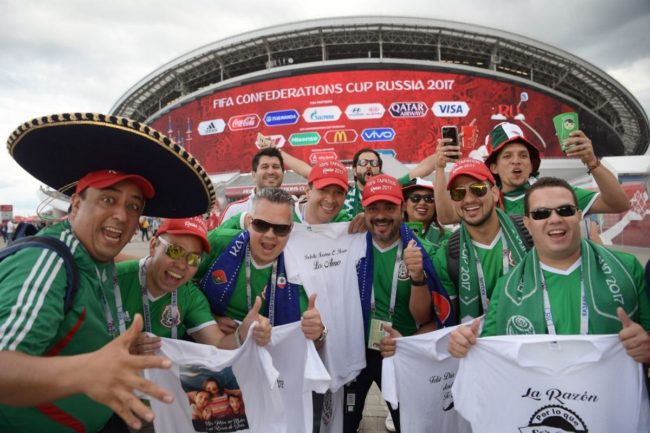
(Getty)
Germany v Sweden
Verdict: Incredibly, another defeat for the World Cup champions, with Germany failing in the face of Sweden’s superior legislation on same-sex adoption. With two defeats, Germany crash out of the tournament.
England v Panama
Verdict: Another easy win for Gareth Southgate’s England.
Japan v Senegal
Verdict: Japan all the way.
Poland v Colombia
Verdict: With legal same-sex marriage and adoption, Colombia wins this at a canter.
Uruguay v Russia
Verdict: Russia finally comes unstuck, losing to a country which has exceedingly superior LGBT rights.
Saudi Arabia v Egypt
Verdict: The two bottom teams of the group take each other on to find out who is the biggest loser – and of course, it’s Saudi Arabia. A win for Egypt, though not much pride.
Spain v Morocco
Verdict: Spain to win comfortably.
Iran v Portugal
Verdict: Portugal wins, in perhaps the biggest mismatch of the entire tournament.
Australia v Peru
Verdict: Australia protects LGBT people from discrimination and allows trans people to legally change their gender. Another win for Oz.
Denmark v France
Verdict: A very close match between two excellent countries for LGBT people. Denmark edges it, thanks to its superior legislation for trans people and ban on gay ‘conversion’ therapy.
Nigeria v Argentina
Verdict: Argentina triumphs without much resistance.
Iceland v Croatia
Verdict: Iceland has same-sex marriage and adoption, and your well-earned support.
South Korea v Germany
Verdict: A first – and only – win of the competition for Germany.
Mexico v Sweden
Verdict: Sweden wins, but only just.
Serbia v Brazil
Verdict: Brazil wins by virtue of having legalised equal marriage and prohibited gay ‘conversion’ therapy, making it three wins out of three for the South Americans.
Switzerland v Costa Rica
Verdict: The Swiss gain a vital second win, thanks to its better protections against discrimination and the prospect of civil unions for same-sex couples.
Japan v Poland
Verdict: Japan has banned gay ‘conversion’ therapy and partially legalised equal marriage, which puts it ahead of Poland – just about.
Senegal v Colombia
Verdict: The Colombians sail to another easy victory.
Panama v Tunisia
Verdict: This is a game where neither team should feel particularly proud of itself, but gay sex is at least legal in Panama.
England v Belgium
Verdict: An incredibly narrow, skin-of-your-teeth victory for England here, based on the fact that gay men in England have to go three months without having sex before donating blood, compared to 12 months in Belgium.
Now that we’ve got through the group stage, it’s time to select a winner from the teams who have made it this far.
Uruguay, Portugal, Denmark, Argentina, Brazil, Sweden, England and Colombia are the countries who have won all their games up to this point – so who will (metaphorically) lift the World Cup’s LGBT trophy? Who should you be supporting this summer?
From this collection of European and South American nations (so quite similar to the actual World Cup, then), the competition is fierce.
The quarter-finals see the titans of Argentina, Brazil, Denmark and Colombia fall by the wayside, leaving only four countries in the tournament.
From these progressive few, Uruguay emerges triumphant, lifting the golden trophy high with a near-perfect score in every LGBT rights category.
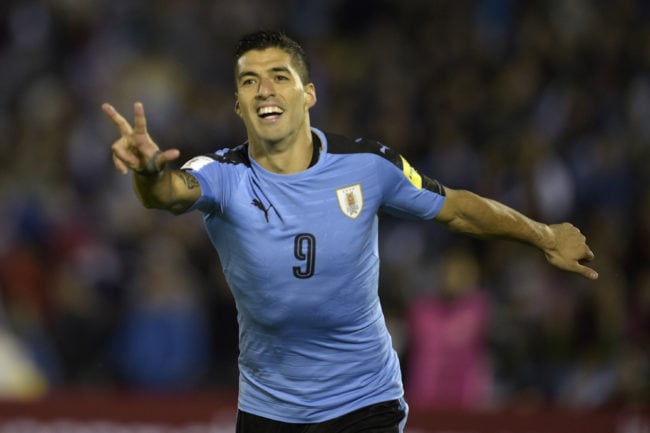
(MIGUEL ROJO/AFP/Getty)
So, there you have it: Uruguay deserves your support, more than any other nation.

